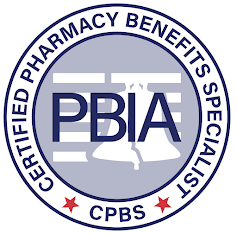How a Duty to Spend Wisely on Worker Benefits Could Loosen PBMs’ Grip on Drug Prices and other notes from around the interweb:
- How a Duty To Spend Wisely on Worker Benefits Could Loosen PBMs’ Grip on Drug Prices. Ann Lewandowski knows all about pharmacy benefit managers, or PBMs, the companies that shape the U.S. drug market. Her job, as a policy advocate at drugmaker Johnson & Johnson, was to tell patient and physician groups about the PBMs’ role in high drug prices. Armed with that knowledge, Lewandowski filed a potentially groundbreaking lawsuit in February. Rather than targeting the PBMs, however, she went after a big company that uses one — her own employer, Johnson & Johnson. Lewandowski charges in her lawsuit that by contracting with the PBM Express Scripts, which is part of the insurance giant Cigna, Johnson & Johnson — which fired her in April — failed in its duty to ensure reasonable drug prices for its more than 50,000 U.S. employees.
- Drugmakers paid pharmacy benefit managers to avoid restricting opioid prescriptions. There have been many entities accused of being the culprits of the spread of opioid abuse across the country during the last few years. One group had not been held accountable — until a recent New York Times investigation exposed how Big Pharma incentivized pharmacy benefit managers not to restrict painkiller prescriptions. This information has added a new layer of blame to a convoluted crisis. For years, pharmacy benefit managers “took payments from opioid manufacturers,” including Purdue Pharma, in return for “not restricting the flow of pills,” The New York Times said in its exposé. As tens of thousands of Americans succumbed to overdoses and the opioid crisis raged on, “the middlemen collected billions of dollars in payments.” The benefit managers “exert extraordinary control over what drugs people can receive and at what price,” the Times said.
- Zepbound Approved for Obstructive Sleep Apnea. The U.S. Food and Drug Administration on Friday approved Eli Lilly’s (LLY.N), opens new tab weight-loss treatment, Zepbound, for obstructive sleep apnea, making it the first drug greenlighted to directly treat patients with the common sleeping disorder. The regulator approved the drug for moderate to severe obstructive sleep apnea in adults with obesity, the company said. The approval opens up a wide market of patients for Lilly at a time when demand for Zepbound is already surging. It could also strengthen Lilly’s case with commercial insurers and employers, who have previously hesitated to cover the drug due to its high cost. Shares of the Indianapolis-based drugmaker were up 1.14% in after-market trading following the announcement. Sleep apnea patients stop breathing briefly while sleeping, disturbing the sleep cycle and causing long-term complications such as heart conditions. The condition affects roughly one billion people globally.
- PBM Contracting and Administration: What Are the Rules of the Road for Self-Insured Employers? Recently, PBMs have faced growing scrutiny, especially for their role in drug pricing and lack of transparency. Less attention has been given to the misuse of drug formularies—the foundation of drug benefits, listing medications covered by health insurance. While some argue formularies’ purpose has remained consistent over 30 years, others disagree. Initially, a pharmacy and therapeutics committee within a PBM, health plan, or other organization developed drug formularies. Clinicians and other experts on the committee determined the drug’s safety, efficacy, and unique clinical aspects. If the drug met their standards, they placed it on the formulary.
